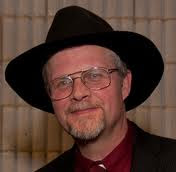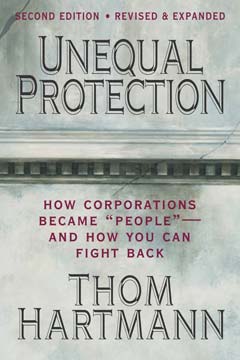This is an exchange I had with a Hyper-Calvinist (HC) on a facebook page. This answers many questions that I get from Hypers frequently so I thought I would post it.
HC: God does NOT sincerely offer the Gospel to reprobates…that’s just illogical and unbiblical and retarded
This is what you have God saying “hey reprobate! yeah you who I have NOT chosen to be saved, I really want you to be saved but naaah” LMBO!!! come on guys…..Clarkinian to the fullest
Riley Fraas: The free offer doesn’t say that God wants the reprobate to be saved. It just sets before the sinner his duty to believe in Christ, and the reward promised to those who do, I. E. the universal terms of salvation.
HC: Then that’s a command not a sincere free offer…apples and oranges
Riley Fraas: It is sincere. All those who believe will sincerely be saved, no exceptions. It is an offer, I. E. setting before =”offering” them the terms of salvation.
Drake: Sean Gerety at God’s Hammer in his article Janus Alive and Well says,
“While at times “well meant offer” defenders appear to be Calvinistic in their belief in God’s sovereign election and particular atonement, they also maintain a belief in the universal desire of God for the salvation of those God predestined to perdition; the reprobate. It is this combination of particularism and pluralism, or simply Calvinism and Arminianism, that make up the two faces of Janus.”
This is a typical misrepresentation of the Puritan view. The Free Church of Scotland (cont.) has a great reference section on this issue called “The Will of God and the Gospel Offer”. You can reference this here: I would like to draw your attention to the article titled: The Will of God and the Gospel Offer: Samuel Rutherford and Francis Turretin.Though Sean thinks reading John Murray, Bahnsen, Van Til, Hoeksema , James Anderson and (Janus man) Professor Clark is sufficient to understand the Puritans I would rather keep my nose in the 17th century and read their own unfiltered words. A few juicy quotes for you from Turretin:
“(Institutes of Elenctic Theology, topic XV, question II, paragraphs XIV-XVI and XXI, trans. George Musgrave Giger, ed. James T. Dennison, Jr., Phillipsburg, N.J.: Presbyterian and Reformed Publishing Company, 1992-97, vol. 2, pp. 507-09, reproduced with kind permission of the publishers*)”
“XIV. Although God does not intend the salvation of the reprobate by calling them, still he acts most seriously and sincerely; nor can any hypocrisy and deception be charged against him — neither with respect to God himself (because he seriously and most truly shows them the only and most certain way of salvation, seriously exhorts them to follow it and most sincerely promises salvation to all those who do follow it [to wit, believers and penitents]; nor does he only promise, but actually bestows it according to his promise); nor as to men because the offer of salvation is not made to them absolutely, but under a condition and thus it posits nothing unless the condition is fulfilled, which is wanting on the part of man. Hence we cordially embrace what is said on this subject by the fathers of the Synod of Dort: “As many as are called through the gospel are seriously called. For God shows seriously and most truly in his word, what is pleasing to him, to wit, that the called should come to him. He also seriously promises to all who come to him and believe rest to their souls and eternal life” (“Tertium et Quartum: De Hominis Corruptione et Conversione,” 8 Acta Synodi Nationalis . . . Dordrechti[1619-20], 1:[302]).”
So I reject Sean’s gloss that we assert that God desires the salvation of the reprobate. Read the rest of the article. No doubt the issue of the Divine Will will be requested and I have prepared an article here. The solution to these debates is a denial of the Neo-Platonic doctrine of Divine Simplicity so we can even see parts/real distinctions in God’s will. The free offer in Turretin is no paradox, it makes perfect sense.
Sean and Co.’s rejection of this is yet again the Origenism and Monothelitism that I have been writing on. Remember folks, in Monothelitism, the Divine Will is the only will in Christ which is heresy! Our Salvation on the Monothelite view was UNCONDITIONAL whether the human will, willed to die for our sins or not he was compelled and forced by the Divine Will. On the Orthodox view the human will of Christ submitted itself freely to the Divine Will and it did so with great agony. In Gethsemane Christ sweats drops of blood and says, “Not my will, but thine be done”. TWO WILLS! Sean’s Hypercalvinism makes salvation unconditional, the Covenant of Grace unconditional, allows no Permissive Decrees (directly contrary to WCF 6.1), and no Free Offer of the Gospel contingent on Man’s Agency. Why? Because Sean, though he may not want to believe it, at least implies a Monthelitism. Monothelitism means “One Will”, and this is the Divine Will. That sounds pious doesn’t it? At first glimpse there seems to be a wisdom to it, a submission to God’s plan, but underneath that thin veil of piety is a viper. People leave so called “Reformed” Churches for Eastern Orthodoxy because of this issue quite frequently and I am about sick of having to re-eductate x-Hyper Calvinists in Eastern Orthodox Churches.
Concerning an Orthodox view of the Will and Permissive Decrees from a Calvinist position see Girardeau here and here.
By the way, I have pointed out to Sean numerous times that Scripturalism requires numerous exceptions to the confession. He just sears his conscience. He is a bureaucrat. The Westminster confession mentions common sense, it uses Aristotle’s matter and form to explain theology, it teaches an infallible assurance of salvation which Clark clearly rejected in his book on sanctification, it mentions second causes which Clark clearly rejected in his book Lord God of Truth .
Drake: Edgar, you don’t have to convince me that the Scripturalist movement here and now has serious issues. It does. I simply don’t see how you can have a Christian doctrine of revelation God, and the Trinity without Dr. Clark’s rejection of the influences of Dionysius the Areopagite in its application to Revelation, Theology Proper and Triadology. Dr. Clark’s view of knowledge and God is IMO irrefutable.
HC: yes Riley, a sincere command.
HC: All those who sincerely respond to the gospel call are the elect, period. To affirm a view that teaches that God sincerely wants all men to be saved and sincerely OFFERS reprobates salvation is semi-pelagian aka Arminianism not to mention unbiblical and irrational.
Drake: The issue is, the offer is a conditional offer. On the Hoeksemite and Gill’s view which is in essence the same thing, everything is unconditional. Turretin’s point is that the offer can be real to the reprobate because IT IS CONDITIONAL. On Sean G’s view of the Covenant of Grace everything is UNCONDITIONAL. Trace this back to John Gill. His view of Eternal Justification is the fountain of all this nonsense.
Drake: Our Salvation on the heretical Monothelite view was UNCONDITIONAL whether the human will, willed to die for our sins or not he was compelled and forced by the Divine Will. On the Orthodox view the human will of Christ submitted itself freely to the Divine Will and it did so with great agony. In Gethsemane Christ sweats drops of blood and says, “Not my will, but thine be done”. TWO WILLS! Sean’s and HC’s Hypercalvinism makes salvation unconditional, the Covenant of Grace unconditional, allows no Permissive Decrees (directly contrary to WCF 6.1), and no Free Offer of the Gospel contingent on Man’s Agency, and no condition in justification per John Gill. Why? Because they, though they may not want to believe it, at least imply a Monthelitism. Monothelitism means “One Will”, and this is the Divine Will. That sounds pious doesn’t it? At first glimpse there seems to be a wisdom to it, a submission to God’s plan, but underneath that thin veil of piety is a viper. People leave so called “Reformed” Churches for Eastern Orthodoxy because of this issue quite frequently and I am about sick of having to re-educate X-Hyper Calvinists in Eastern Orthodox Churches.
Drake: Where is your synergy in your plan of salvation HC? WCF 10.2
“This effectual call is of God’s free and special grace alone, not from anything at all foreseen in man, who is altogether passive therein, UNTIL, being quickened and renewed by the Holy Spirit, he is thereby enabled to ANSWER this call, and to EMBRACE the grace offered and conveyed in it.”
Robert Robert Shaw Commenting on this says,
“7. That in this calling the sinner is altogether passive, until he is quickened and renewed by the Holy Spirit. Here it is proper to distinguish between regeneration and conversion; in the former the sinner is passive – in the latter he is ACTIVE, or CO-OPERATES [SYNERGY]with the grace of God. In regeneration a principle of grace is implanted in the soul, and previous to this the sinner is incapable of moral activity; for, in the language of inspiration, he is “dead in trespasses and sins.” In conversion the soul turns to God, which imports activity; but still the sinner only acts as he is acted upon by God, who “worketh in him both to will and to do.”
Drake: The human will of Christ acted in a synergy with the divine will in Gethsemane to will to die. This is an essential principle of Christianity: two wills and two natures in Christ. You have to have a synergy in your theology in order for it to be Christian. The Monothelete view was that the human nature of Christ was completely passive in his choice to save men, no activity, no embracing, no answering the call.
Drake: Riley we may have some differences on the conditionality of the COG. I take Rutherford’s view of the Covenant of Grace (COG) and the Covenant of Redemption (COR). To be represented by Christ in the COR is unconditional to receive that which is promised by the COG and to be a member of the COG is conditional. The perspective of God that you are talking about is a completely different covenant called the COR on my view. That is the position of the Free Church of Scotland (cont) that I am technically still a member of but I live in a different state now: Methinks, they nailed that.
Riley Fraas: The COR and COG are not different covenants, but one covenant viewed from the perspective of the Redeemer on the one hand, and the beneficiaries on the other hand.
Drake: Here are my reasons why I think the Covenant of Redemption is a Covenant Distinct from the Covenant of Grace
1. Since there is already a temporal and eternal aspect to this covenant, this eliminates the Bostonian argument that redemption and grace are merely two different aspects of the same covenant, one eternal one temporal.
2. The actions in the covenants differ. In the Covenant of Redemption the action required is perfect obedience to God’s law. The action in the Covenant of Grace is faith in the messiah.
3. The Covenant of Redemption is monophrastic, unconditional, and cannot be broken. The Covenant of Grace is conditional and can be broken.
4. Bostonians will say that the condition or action of the Covenant of Grace is upon Christ and not man. If this is so, then there cannot be a conditional covenant between God and men because men have no condition to fulfill. There is therefore no Covenant of Grace between God and men.
5. Christ is not obligated to fulfill the condition of the Covenant of Grace, namely faith in the Messiah.
6. Christ is in need of no promises in the Covenant of Grace, namely, adoption, forgiveness of sins, etc.
7. Christ is the mediator between the two parties in the Covenant of Grace. It is impossible therefore, ipso facto, for Christ to be both the mediator and a mediated party in the same covenant. Therefore, redemption and grace are different covenants.
8. The promises of the Covenant of Redemption (sitting at the right hand of God, divine Kingship over all nations Psalm 2, etc.) are not given to the elect but to Christ.
Summary: The Covenant of Redemption has different parties, a difference of mediation, different actions required, different promises, and is made in eternity while the Covenant of Grace is made in time. Therefore, these are different covenants though the Covenant of Redemption is the basis and fountain of the promises of the Covenant of Grace.
Obj. The Covenant of Grace is called an everlasting covenant in Heb 13:20
Ans. This refers to everlasting directed to the future not the past.
Riley Fraas: Drake, this goes back to my statement that the Covenant of Grace is either conditional or unconditional, depending on how you view it. At its roots it is essentially unconditional. God decides to save man by a Redeemer. Reference the Shorter Catechism, question 19. However, it is administered or proclaimed as conditioned upon faith in the Redeemer. But really the covenant of grace is unconditional: God saves his elect by a redeemer.
HC: Nope no synergy in my theology or in reformed theology period……sounds like neo-calvinism to me.
Riley Fraas: HC, without synergy, you don’t have Christianity, you have Greek fatalism. Without synergy, it makes no difference what you or I do, think, or believe, so we should just stop debating and the churches should stop preaching.
Drake: HC, I am in no way rejecting monergism in regeneration. I understand that man’s will is bound with no ability to do sanctified works or to believe in Christ before regeneration. However, in conversion man is active in a synergy with God. I am glad that you admit you have no synergy anywhere in your theology. I am trying to get a couple other friends that believe like you to admit this.
Drake: Gill’s theology posits faith as an effect of justification not a condition of it. Here is the issue: The WSC Q30: How doth the Spirit apply to us the redemption purchased by Christ?
A30: The Spirit applieth to us the redemption purchased by Christ, by working faith in us, and thereby uniting us to Christ in our effectual calling. Faith unites to Christ. So what is the basis of justification? WCF 11:4 IV. God did, from all eternity, decree to justify the elect; and Christ did, in the fullness of time, die for their sins and rise again for their justification; nevertheless they are not justified ********until the Holy Spirit doth, in due time, actually apply Christ unto them.*****
WLC Question 69: What is the communion in grace which the members of the invisible church have with Christ?
Answer: The communion in grace which the members of the invisible church have with Christ, is their partaking of the virtue of his mediation, in their justification, adoption, sanctification, and: Whatever else, in this life, **************manifests their union with him. ***************** So the basis of the justification is union with Christ. When does union with Christ happen? At the moment of faith. So then faith must come before justification. Yet Gill says it comes after justification as an effect. This should settle the issue that Gill was wrong and his whole hyper-determinist theology should get the flush.
HC: Well, I’m not here to debate monergism vs synergism my only contention is with Reformed folk being inconsistent in their theology by attempting to claim that God actually sincerely offers salvation to those he hasn’t chosen to save….that’s Vantilianism for you, the acceptance of paradox.
HC: no Drake I affirm the historical reformed position that faith is the instrumental cause of Justification but that faith is monergistically given to the elect as a gift therefore in essence all aspects of soteriology is monergistic.
Riley Fraas: The Reformed position is a monergistic salvation administered synergistically. And regarding the free offer, the sincere offer of the gospel made to the sinner does not obligate God any further or imply that he must also be willing to supply the condition wanting, which is faith in Christ.
Drake: HC,”attempting to claim that God actually sincerely offers salvation to those he hasn’t chosen to save….that’s Vantilianism for you, the acceptance of paradox.” The offer though is conditional. That is why it is not a paradox. I can’t stand Van Til and I will have nothing to do with his theology and I will have nothing to do with paradoxes.
Drake: HC, ”no Drake I affirm the historical reformed position that faith is the instrumental cause of Justification” This implies a condition and a synergy.
Drake: ” faith is monergistically given to the elect as a gift therefore in essence all aspects of sotoriology is monergistic.” This comes from my article W.G.T. Shedd and Robert Shaw on Conversion and the Order of Salvation: Shedd says,
Dogmatic Theology, Third Edition by W.G.T. Shedd, ed. Alan Gomes (P&R Publishing: Phillipsburg, NJ, 2003)
“Faith unites with Christ, and union with Christ results in justification.” (pg. 793)… “faith is the instrumental, not the procuring or meritorious cause of his justification: ‘God justifies, not by imputing faith itself, the act of believing, but by imputing the obedience and satisfaction of Christ [WCF 11.1]. The reasons are…1. Because faith is an internal act or work of man. If the sinner’s act of faith merited the pardon of his sin and earned for him a title to life, he would be pronounced righteous because of his own righteousness. Faith is denominated a work: ‘This is the work of God, that you believe’ (John 6:29). It is the activity of the man, like hope and charity, and can no more be meritorious of reward or atoning for disobedience than these acts can be” Now these things are extremely important to those Calvinists who are under the influence of hyper-Calvinism, and a form of determinism that is not compatible with Christianity. These folks are usually in Reformed Baptist Churches or under the influence or Herman Hoeksema and co. In order to be Christian you must posit a synergy somewhere between God and man. My Reformed Baptist friend said,
“Isn’t a circumcision of the heart necessary for faith to exist? If so, then how can the promise of a circumcised heart be conditioned upon an individual’s faith (supplied by God or not)?…Isn’t faith a gift? Doesn’t the Holy Spirit cause our belief?”
I would simply see the circumcision of the heart to be a synonym for the effectual call. The effectual call has two parts as Shaw stated regeneration and conversion. In regeneration we are passive but in conversion we are active and exercise faith (synergy). As WCF 11.1 earlier stated the ability to believe is a gift but God does not impute the action of faith to us. We have to do that in our conversion. God causes it, sure but that doesn’t exclude our agency. This is the exact nominalism I was just criticizing Hugh about the other day. This is the version of Monergism that I get criticized by my Eastern friends all the time. Now I see their point clear as day. The Reformed Baptist or Hoeksemite view basically asserts that God is the only willing and active agent in the universe. If that is the case then Christ’s human nature had no free agency. Therefore, he did not have a will but the only will in Christ is then the divine will that compels the human. That is the Monothelete heresy that the 6th ecumenical council was convened to refute. The point that I am making is that if Christ’s human nature has no free agency then it is not truly human. It is a logical consequence from scripture that Christ has two wills from the definition of human nature that the Bible gives us and from the passage in Gethsemane when Christ says “not my will but thine be done.” There are two wills in Christ. The human will of Christ freely chose to lay its life down for the elect. That was not forced on him by the divine will. The human will was not passive while the divine will forced it to die for us.[That was the Monothelete position] The human will made an active volition to do this in a synergy with the divine will. You have to have synergy somewhere in your theology for it to be Christian. I am a Calvinist and I believe that man’s will is bound to sin pre-effectual call. But after regeneration man now has the ability to chose salvation and sanctified works as God has given grace to do so [That is Biblical Monergism]. This activity on elect man’s part that follows immediately from regeneration is called conversion. Conversion is synergistic. Regeneration is Monergistic.
So the order of redemption goes like this:
1.Effectual Calling
a. Regeneration
b.Conversion
i. Faith – United to Christ
ii. Repentance
2. Justification-Basis is union with Christ
3. Sanctification
4. Glorification
To supplement the Shedd quote, “Conversion is that action of man which results from regeneration. As the etymology implies, it is turning toward (converto) a certain point. Conversion consists of two acts: faith and repentance…Faith and repentance are converting acts; the first having principal reference to justification, the second to sanctification; the first to the guilt of sin, the second to its corruption.”(pg. 787)
Drake: Shedd says,
“Faith is the effect of which regeneration is the cause. This is taught in the following: ‘Whosoever believes that Jesus is the Christ is born of God’ (1 John 5:1); ‘unto you it is given, in behalf of Christ, to believe on him’ (Phil. 1:29); we pray that God would fulfill [in you] all the good pleasure of his goodness and the work of faith with power’ (2 Thess. 1:11); ‘that you faith should not stand in the wisdom of men, but in the power of God’ (1 Cor 2:5); ‘no man can come to me except the Father which has sent me draw him; no man can come unto me, except it were given him of my Father’ (John 6:44,65); ‘by him do you believe in God, that raised him up from the dead and gave him glory; that your faith and hope might be in God’ (1 Pet. 1:21)…Saving faith in the person and work of the Redeemer follows regeneration and always presupposes it…Evangelical faith is an act of man. The active nature of faith in Christ is indicated in the scriptural phraseology, which describes it as ‘coming to Christ’ (Matt. 11:28), ‘looking to Christ’ (John 1:29), ‘receiving Christ’ (3:11), and ‘following Christ’ (8:12). The object of the Epistle of James is to teach that faith is an active principle.”(pg. 788) The point is faith is not a totally monergistic event.
HC: drake….semantics my brotha….ultimately our cooperation is monergistic….
Drake: Don’t let me mislead you. Clark did not hold to the free offer. Methinks mostly because of misrepresentations of it as most people who reject the free offer think that we are saying that God desires the salvation of the reprobate. I have met people who hold to the free offer who say this and think there is some great merit in being paradoxical and irrational. If those were the only people I knew that held to free offer I wouldn’t believe it either. Methinks the free church (cont) has done a great service in their website. The quotes from the puritans there are simply overwhelming.
Drake: It’s not semantics HC. Our cooperation is real. God in regeneration does not force our faith. I personally do not like the language of irresistible grace but I like effectual call. In regeneration God’s operation is in convincing the conscience not forcing it. Robert Shaw commenting on chap 10 of the confession states: “4. That in this calling no violence is offered to the will. While the Spirit effectually draws sinners to Christ, he deals with them in a way agreeable to their rational nature, “so as they come most freely, being made willing by his grace.” The liberty of the will is not invaded, for that would destroy its very nature; but its obstinacy is overcome, its perverseness taken away, and the whole soul powerfully, yet sweetly, attracted to the Saviour. The compliance of the soul is voluntary, while the energy of the Spirit is efficient and almighty: “Thy people shall be willing in the day of thy power.”—Ps. cx. 3.” See that. Thy people shall be willing. Not, “thou shalt will them.”
Methinks that to avoid any accusation of a paradox one must 1. Assert that the COR and the COG are distinct covenants. 2. Understand the fact that the COG is Conditional. 3. Understand the two distinct parts of effectual calling: the first part being regeneration where man is passive and God’s activity is infallible; the second part conversion where man is active.
HC: no reformed teaches forcing but being made willing and effectually come….i think you are misunderstanding irresistible grace.
Drake: Asserting that I misunderstand doesn’t help and is simply asserting your opinion. Is man active in his salvation at any point?
HC: of course man is active but only because God activates mans activity through regeneration so again in the final analysis it is monergistic….i agree with you that man cooperates with the effectual call but why is it effectual if not because God monergistically and sovereignly gives man the ability and want to cooperate so i reiterate monergism is the only logical conclusion….therefore i agree in synergy it THAT sense but again in the final analysis it is totally monergistic at its core… as Scripture clearly teaches “For it is God who works in us both to will and to do of His good pleasure” Monergism
Drake: God activates man’s faculty of activity. Saying that God activates man’s activity is indistinguishable from the monothelete view. Acts 16:14 A woman named Lydia, from the city of Thyatira, a seller of purple fabrics, a worshiper of God, was listening; [fn]and the Lord opened her heart to respond to the things spoken by Paul. God activated her faculty of operation so SHE could respond.
Drake: ” if not because God monergistically and sovereignly gives man the ability and want to cooperate so i reiterate monergism is the only logical conclusion” In regeneration sure. But Shedd’s point above is that effectual call includes conversion.
Drake: “For it is God who works in us both to will and to do of His good pleasure” This does not refer to God acting for us. God activates our faculties so we can act. Not so he acts for us.
HC: Drake…I am aware of all that but you are not getting my point apparently. the ONLY reason the Elect act is because of Grace by God through the Holy Spirit giving us the WANT to please Him therefore AGAIN, in the final analysis all Glory goes to God alone even for the good works that I do because it is only because He has given me the the free gift of regeneration changing my heart and will to WANT to please Him. When I get to heaven I don’t tell God “hey thanks for the push through the Holy Spirit that I was able to do good works to please you so now you God must let me in because I earned it”. I am fully aware that we are not Robots and have a will of our own but this will that I have to love God was given to me by God and He continues to preserve me until the end so that He alone gets the honor and Glory…….Monergism
Drake: Above I quoted robert shaw’s commentary on WCF 10,
”Robert Robert Shaw Commenting on this says,
“7. That in this calling the sinner is altogether passive, until he is quickened and renewed by the Holy Spirit. Here it is proper to distinguish between regeneration and conversion; in the former the sinner is passive – in the latter he is ACTIVE, or CO-OPERATES [SYNERGY]with the grace of God. In regeneration a principle of grace is implanted in the soul, and previous to this the sinner is incapable of moral activity; for, in the language of inspiration, he is “dead in trespasses and sins.” In conversion the soul turns to God, which imports activity; but still the sinner only acts as he is acted upon by God, who “worketh in him both to will and to do.”
Drake: He clearly asserts , “the sinner only acts as he is acted upon by God, who “worketh in him both to will and to do.” Your last few posts have simply asserted what I have already admitted. Getting your point (?), friend I asserted this point a while ago. It is you who are not getting the point. The monergism is in Regeneration NOT CONVERSION. Conversion is the 2nd part of the effectual call where man acts in a synergy with God. You cannot say you believe that the effectual call includes co-operation with God but the whole thing is monergistic. The whole idea behind co-operation is two operations, two energies, i.e. synergy.
Drake: “When I get to heaven I don’t tell God “hey thanks for the push through the Holy Spirit that I was able to do good works to please you so now you God must let me in because I earned it”. ” Are you even reading my posts? I( will quote Shedd again: Shedd says,
Dogmatic Theology, Third Edition by W.G.T. Shedd, ed. Alan Gomes (P&R Publishing: Phillipsburg, NJ, 2003)
“Faith unites with Christ, and union with Christ results in justification.” (pg. 793)… “faith is the instrumental, not the procuring or meritorious cause of his justification: ‘God justifies, not by imputing faith itself, the act of believing, but by imputing the obedience and satisfaction of Christ [WCF 11.1]. The reasons are…1. Because faith is an internal act or work of man. If the sinner’s act of faith merited the pardon of his sin and earned for him a title to life, he would be pronounced righteous because of his own righteousness. Faith is denominated a work: ‘This is the work of God, that you believe’ (John 6:29). It is the activity of the man, like hope and charity, and can no more be meritorious of reward or atoning for disobedience than these acts can be” I ma not saying that man’s activity is meriting anything that he earns as Shedd makes very clear. However, it is the necessary instrument, THAT IS A CONDITION. The COG has a condition. Your theology does not say that. It says that everything is unconditional.
Drake: “I am fully aware that we are not Robots and have a will of own” You are asserting this but I don’t think you understand what you are saying. Monergism means one operation, one energy. Co-operation means two operations, two energies. You said, “i agree with you that man cooperates with the effectual call”. This is where I think your misunderstanding is. You are still not seeing that the effectual call has two parts. You want regeneration to be the only part of the effectual call. If that is what you mean by effectual call then our disagreement is over the issue of how effectual call is defined.
HC: Dude, I totally get what you are saying……thats why I said in the final analysis sanctification is Monergistic, God alone, but that the mere fact that man responds at all makes them responsible choosing to obey or not therefore synergistic but God willing what He has ordained preserves His own ensuring progress in sanctification of His elect, therefore Monergistic……feel me………on the flip side, the mere fact that we still sin implicates choice…Monergistic in the final analysis…synergystic in reference to Mans Responsibility.
God is the primary cause being that He ordained it to be, but that which He has ordained comes to pass by the use of human choices or actions AKA secondary causes. In Reformed Theology salvation in all its process is monergistic…..maybe I’m not making my point clear. Also it seems that you are not understanding what is meant by secondary causes…..man cooperates only because God enables us to and though God has ordained my steps I choose what God has ordained for me to choose because I WANT to OR my will desired it….We freely choose what God has purposed for us to choose, that’s my point and that is the Reformed position.
I am fully aware that the regenerate person is ACTIVE in his response to the inward call and effectually come, I am not even disputing that. I guess we are talking past each other or something. The bottom line is that the only reason I respond or co-operate is because I have been given a desire to and this desire is effectual and irresistible, that’s it. So that in the FINAL analysis me entire salvific process from Regeneration to my Sanctification to my final Glorification is all the Work of God and therefore ultimately Monergy. I know you insist on using the word “synergy” but for theological purposes I don’t think that term is wise to use lest we confuse our hearers.
HC: By the way I am not a Shedd fan myself……I can appreciate his insights but I think there are better Reformed cats to turn to IMO…But anywho, I’m still waiting on the Biblical passages that teach or even imply that God SINCERELY OFFERS Salvation to all……let me know when you guys find at least one. And please don’t use the Arminian artillery like the Peter passage and the Timothy passage lol
Drake Shelton I have some problems with shedd too but those passages I quoted are spot on
Drake Shelton Deut. 5:29. O that there were such a heart in them, that they would fear me, and keep my commandments.
Ps. 81:13. O that my people had hearkened unto me, and Israel walked in my ways
Ezek. 18:31. Why will ye die, O house of Israel? Verse 32. For I have no pleasure in the death of him that dies.
Prov. 1:20. Wisdom cries, she uttereth her voice in the streets.
HC: no doubt Drake Shedd was most def on point in that regard
HC: Brotha Drake, I don’t see the relevance or import of the passages you provided as positive proof for the “sincere offer” position.
Actually I will add a verse for you as well in Matt 23:
Matt 23:37
“Jerusalem, Jerusalem, who kills the prophets and stones those who are sent to her! How often I wanted to gather your children together, the way a hen gathers her chicks under her wings, and you were unwilling.
But what do all these passages have in common? I firmly believe being consistently Reformed that Romans reveals to us God Ordained purposes concerning Israel especially Romans 11….
Romans 11
2 God has not rejected his people whom he foreknew. Do you not know what the Scripture says of Elijah, how he appeals to God against Israel? 3 “Lord, they have killed your prophets, they have demolished your altars, and I alone am left, and they seek my life.” 4 But what is God’s reply to him? “I have kept for myself seven thousand men who have not bowed the knee to Baal.” 5 So too at the present time there is a remnant, chosen by grace. 6 But if it is by grace, it is no longer on the basis of works; otherwise grace would no longer be grace.
7 What then? Israel failed to obtain what it was seeking. The elect obtained it, but the rest were hardened, 8 as it is written,
“God gave them a spirit of stupor, eyes that would not see and ears that would not hear,
down to this very day.”
So why are they unwilling? What does that passage in Romans say is the reason why? God purposely blinded them and is the case with all born in sin totally depraved and unwilling to come until grace is given.
Do you guys have at least ONE NT passage that even remotely implies a “sincere offer” view?
Drake: I have never used Mat 23 as a proof for free offer. Mat 23 is a rebuke to the Jewish leadership that rejected Christ. “So why are they unwilling? What does that passage in Romans say is the reason why? God purposely blinded them and is the case with all born in sin totally depraved and unwilling to come until grace is given.”…Agreed.
1 Cor 1:24 But unto them which are called, both Jews and Greeks, Christ the power of God, and the wisdom of God.
Prov. 1:20. Wisdom cries, she uttereth her voice in the streets
HC: yes God has elected from both Jews and Gentiles…..still don’t see the sincere offer
HC: Also I know you didn’t use Matt 23 as a proof text but I had a reformed brotha use that one with me so I thought I would also bring it up just in case
Drake: Rom 10:21 But as for Israel He says, “ALL THE DAY LONG I HAVE STRETCHED OUT MY HANDS TO A DISOBEDIENT AND OBSTINATE PEOPLE.”
Isa 65:2 “I have spread out My hands all day long to a rebellious people, Who walk in the way which is not good, following their own thoughts
Leave a Response »
 The link for the entire article will be at the end of this post. For brevity sake I will only quote my definition and my arguments against the Hyper-Calvinist rejection of the Free Offer:
The link for the entire article will be at the end of this post. For brevity sake I will only quote my definition and my arguments against the Hyper-Calvinist rejection of the Free Offer:










-1-.jpg)

























